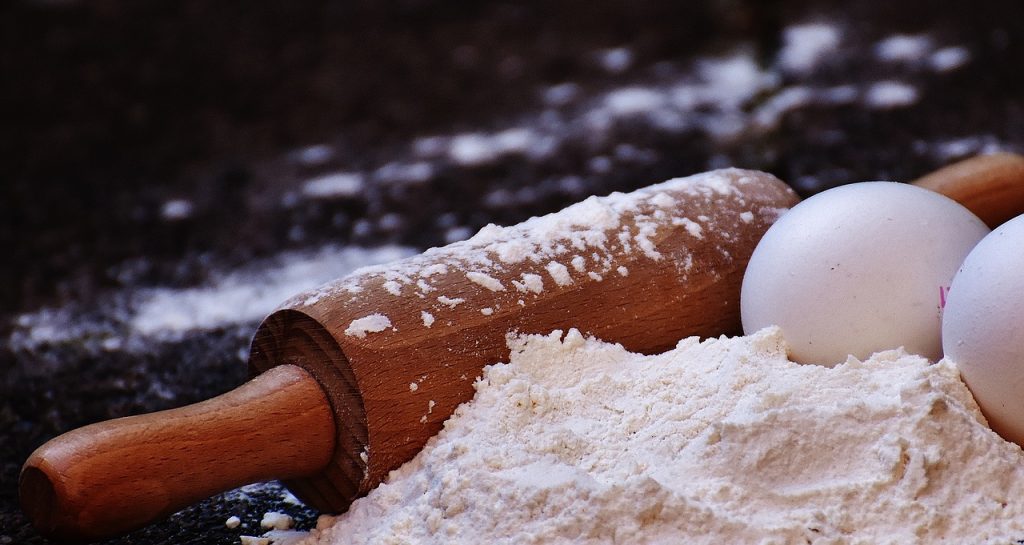The recent recall of flour is important to note, but during a recall is not the only time to be concerned about the safety of raw flour.
The grocery chain, Aldi, recently recalled Baker’s Corner brand flour produced by ADM Milling Company due to the presence of a harmful bacteria, E. coli. While it is appropriate to be concerned about getting sick from this lot of flour, that concern should apply to all brands of raw flour.
Flour is a raw agricultural commodity. Wheat is grown outside in a field where birds and other animals fly over and wander through the field which can introduce contaminants. The wheat is harvested and taken to a mill, and ground into powder. There is no intervention step against biological contaminants, like E. coli, in the factory. These bacteria are killed by cooking, baking, or frying food at home.
While efforts are taken to reduce the risk, due to the nature of the flour production process, bacterial hazards are always a concern. This recall is not the first. Flour has been implicated in many food-borne illness outbreaks over the years. It is for this reason that many manufacturers of flour and products containing raw flour, like cake and brownie mix, include a warning on the package to not consume raw dough or batter.
When making food that contains raw flour, be sure to wash your hands, countertops, and mixing bowls thoroughly. Be mindful of cross contamination. This is when contaminants are accidentally transferred from one surface to another. For example, if you place raw cookie batter onto a baking sheet and don’t wash your hands before handling baked cookies or if you use a measuring cup to measure flour, then use the same cup to measure sugar. It is also important to overcome the temptation to lick the spatula when mixing up baked goods.
If you have any of the affected flour, the FDA recommends that you discard it. That said, if you already used some of the recalled flour, if the product was thoroughly cooked or baked, and you handled the raw ingredients appropriately, there is little need for concern. You should always handle raw flour as though it is contaminated, similar to raw meat.




